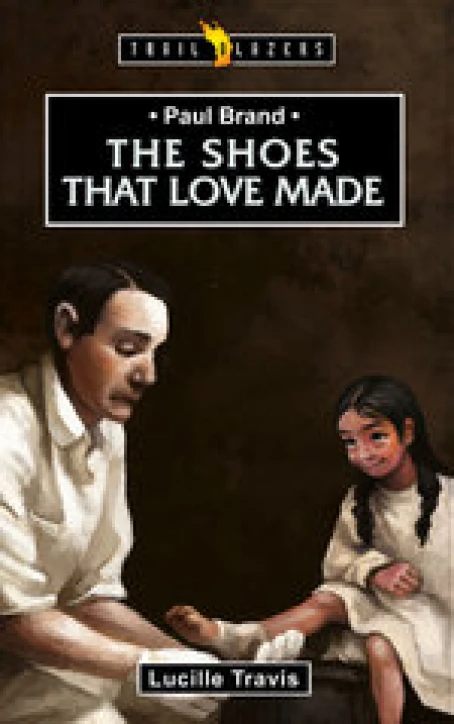Notable and Quotable: Lucille Travis
New Releases, Updates and More

Paul and Connie had both finished their schoolwork for the day and were heading towards the forest of trees nearby when their mother's voice brought them to a standstill. "Paul, Connie, go into the house immediately and stay there until I come for you." As usual Connie, who could be counted on to obey, turned back to the house. Paul followed slowly, ready to question his mother until he saw what his mother had already seen: three strangers, their feet wrapped in bloody rags, coming up the trail to the mission. The men lifted their hands in the Indian greeting palms together, and Paul gasped. Where some fingers should have been were small stubs or none at all and the others were bent into claw-like shapes. Whatever was the matter with these men it was so bad that Paul's mother would not allow them to even stay and watch their father work on them as they usually did. Quickly Paul hid behind the corner of the house where he could still see and not be seen. Paul's father hurried toward the men greeting them in Tamil. His father had brought a bucket of water to cleanse their feet and fresh bandages, but as he worked Paul saw that he wore gloves. Paul shifted his weight quietly. His father was kneeling near the men as Paul had so often seen him do with his patients. Only this time his father did not probe their wounds. As he unwrapped their bloody bandages, Paul saw the missing toes, the stubs of feet, and the terrible infected ulcers. His father's gloved hands did not actually touch their feet without the thick pad of bandages he held. He seemed to be wasting bandages, layering them thickly between himself and the men's skin. When he was finished he did not pick up the soiled pads but left them lying in a heap on the ground where he had dropped them. Finally, his father stood and let the gloves slip from his hands onto the pile, spoke something softly and turned towards the washing shed holding his hands before him. Now would be the time Paul knew his mother would offer the men food before they left for their village. This time she came from the house holding a basket of fruit and bread and set it down a few feet away from the men. "You may keep the basket, " she called to them. Curious, Paul wondered why his mother would give them one of her few baskets and why she did not sit with them as she usually did with those who came for help. Still in his hiding place, Paul watched as the men ate. His father too stood nearby watching. Why wasn't he sitting with the men and talking to them, Paul wondered. When that patients had eaten, they stood, thanked his father in the Tamil way and left. They did not take the basket. Paul couldn't wait any longer. "Father," he called as he came towards the spot where the men had been sitting, "who were those men?" "Stop right where you are, Paul," his father commanded sternly. "Neither you or Connie are to play anywhere near that spot. You are not to walk or sit where those men sat. You must obey me in this, son." As he spoke his father set the small pile of soiled bandages on fire and then the empty basket. "The men are lepers, son, and anything they touched must be burned. Leprosy is a terrible disease, dangerous to anyone who comes in contact with it. Do you understand Paul?" "Yes," Paul replied. "I promise not to go anywhere near that place, and I'll see to it that Connie doesn't either." Paul thought of the Bible stories about lepers. How awful leprosy was and it was a dangerous and ugly disease. Paul wanted nothing to do with it.

Excerpted from Paul Brand: The Shoes that Love Made by Lucille Travis (CF4K, 2011).
